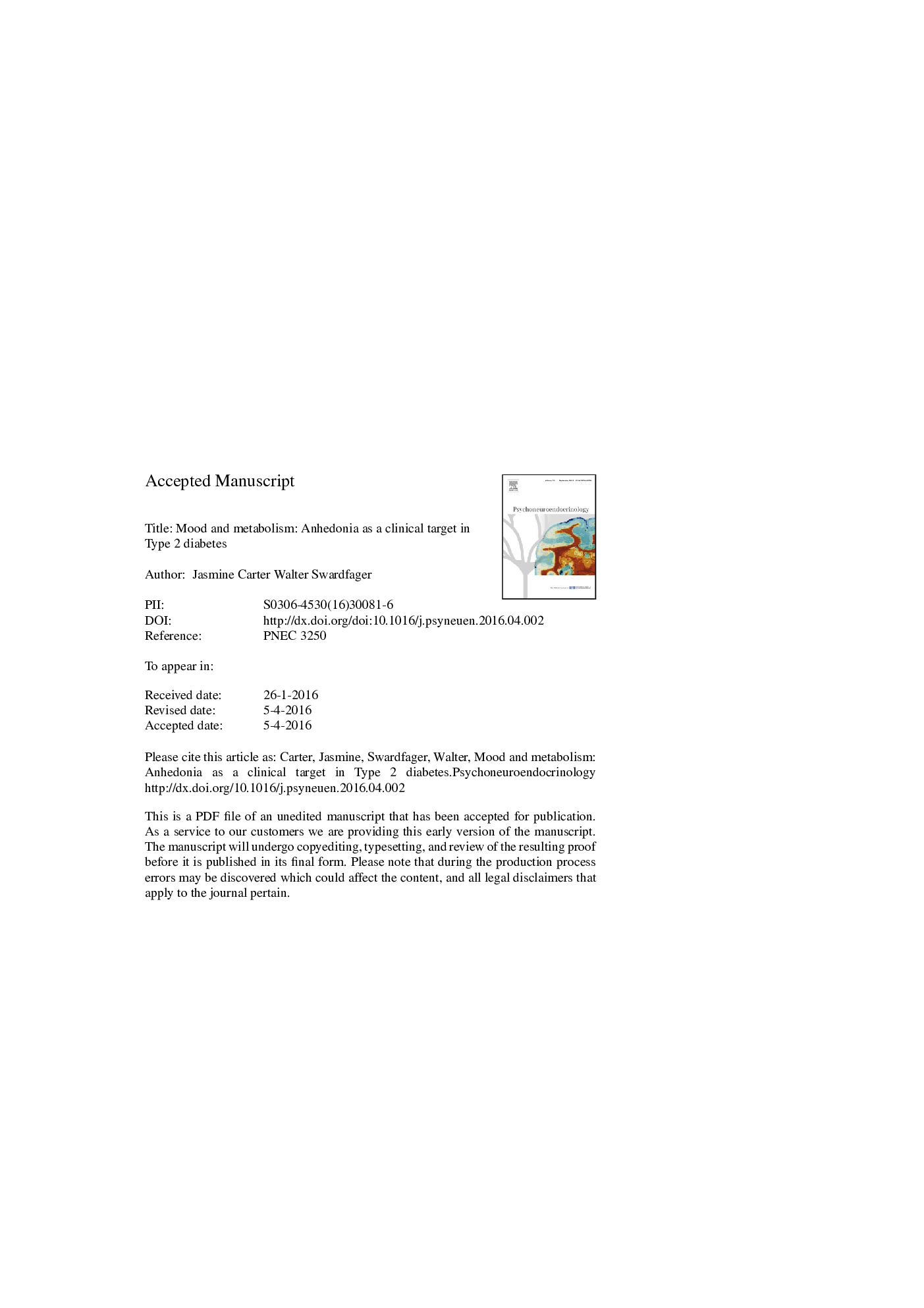| Article ID | Journal | Published Year | Pages | File Type |
|---|---|---|---|---|
| 6818071 | Psychoneuroendocrinology | 2016 | 33 Pages |
Abstract
Epidemiological evidence suggests a bidirectional relationship between depression and Type 2 diabetes mellitus. In Type 2 diabetes, depression affects behavioural factors such as diet and physical activity that promote positive energy balance and influence diabetes outcomes. Examinations of depressive symptoms by dimension have suggested that anhedonia, the inability to anticipate, seek, choose and enjoy reward, may be of particular clinical importance. Structural and functional brain changes in Type 2 diabetes distributed throughout the principally dopaminergic reward circuitry suggest a neurobiological basis for motivational and decisional aspects of anhedonia. Interrelated neuroendocrine, bio-energetic, oxidative and inflammatory changes suggest mechanisms underlying neuronal damage and dopaminergic deficits. A consequential shift in effort-related reward choices and their effects on energy expenditure, self-care and eating behaviours is suggested to affect Type 2 diabetes outcomes. The clinical implications for screening and psychopharmacology of depressive symptoms in people with Type 2 diabetes are discussed.
Related Topics
Life Sciences
Biochemistry, Genetics and Molecular Biology
Endocrinology
Authors
Jasmine Carter, Walter Swardfager,
